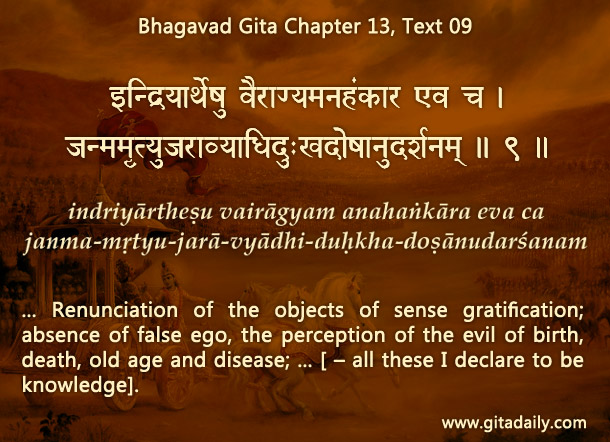We often live in denial of death. Of course, if asked directly, we will admit, “I will die one day.” But that admission rings with remoteness and hollowness, as if we were speaking about someone else in some distant future.
While most of us deny death, a few of us live dreading it. On seeing a sudden or ghastly death, we may become paranoid and dysfunctional. If we see a fatal car crash, we may become too fearful to drive a car or even board one.
Denying and dreading death are both unhealthy attitudes. Instead, we need to contemplate death so that it impels us to set our priorities straight. How? By triggering questions such as: “What really matters in life? If everything is lost at death, does life have any enduring meaning? How can we lead a life worth living?” In finding answers to such questions, Gita wisdom stands ready to help us.
The Bhagavad-gita explains that we all are souls on a multi-life journey of spiritual evolution toward the all-attractive supreme, Krishna. When we connect with him by practicing bhakti-yoga, we gain the self-mastery to become more focused and energized. Then, we can use our time in this world to do justice to our God-given abilities, manifest our potentials and make worthwhile contributions. Moreover, if we regularly connect with Krishna devotionally and make him our foremost love before death, then we all will after death attain him for a life of eternal love and joy.
To progress toward contributing meaningfully and connecting enduringly, we need to contemplate death unsentimentally without denying or dreading it and let that contemplation redefine our priorities. Pertinently, the Gita declares such contemplation to be a characteristic of wisdom (13.09).
One-sentence summary:
Don’t deny death, don’t dread death — contemplate death to get the impetus to focus on the things that matter.
Think it over:
- What are two unhealthy attitudes toward death?
- How is contemplating death beneficial?
- What is your attitude toward death? How can you make it healthier?
***
13.09: … Renunciation of the objects of sense gratification; absence of false ego, the perception of the evil of birth, death, old age and disease; … [ – all these I declare to be knowledge].
To know more about this verse, please click on the image
Explanation of article:

Podcast:


Wonderfully described. Thank you for your service
To live long ,always THINK OF DEATH